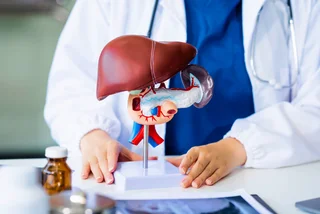Prague is battling its worst hepatitis A outbreak in nearly two decades, with 505 confirmed cases this year, more than double last year’s tally, and infections continuing to rise weekly, city health officials announced.
The surge marks the most severe wave since 2008 and accounts for a large share of the 1,300 infections reported nationwide. Health authorities warn that the virus, often spread due to unsanitary conditions, has already contributed to 15 deaths in Czechia this year and led to severe complications in Prague patients, including liver transplants.
In response, municipal leaders are ramping up sanitation efforts. Prague 1 has earmarked CZK 300,000 for a street-level cleaning campaign, targeting benches, railings, and other high-contact public areas. Health specialists from Na Františku Hospital will supervise the operation, which is expected to run through September.
Rising cases and medical risks
Clinicians at Bulovka University Hospital report increasingly severe cases requiring intensive care. “Even a relatively mild infection can result in a hospital stay of at least a week, followed by weeks off work and months without significant physical activity,” said Dr. Hynek Bartoš, head of the hospital’s infectious disease clinic. Patients with chronic liver disease, weakened immunity, or advanced age remain most at risk.
City hygienists have already issued more than 3,000 directives this year, including vaccination campaigns and workplace or school-based preventive measures. Each confirmed case is followed up closely, particularly when it involves children or group settings.
Officials caution that the start of the school year may accelerate transmission, as children currently represent about one-sixth of reported infections in Prague.
Nationwide, the virus has caused 15 deaths so far in 2025. While most patients recover fully, the infection can take a serious toll, with several Prague residents already requiring liver transplants. Hospitals are urging early vaccination and scrupulous hygiene practices as the most effective protections.
Municipal response and preventive measures
Local authorities say protecting vulnerable groups is a priority. “When health risks emerge, it is our responsibility to act,” Prague 1 Mayor Terezie Radoměřská said, emphasizing the importance of keeping public spaces clean, particularly in areas frequented by people without stable housing.
Hepatitis A spreads primarily through contaminated food or hands, making crowded urban areas and shared facilities especially high-risk. Experts stress that handwashing, careful food preparation, and timely vaccination remain the best defenses against infection.
As infections continue to mount, Prague’s hygiene office says it will monitor developments closely in cooperation with hospitals and schools. For residents, officials say vigilance is key: “The outbreak is serious, but with proper precautions, it can be contained.”


